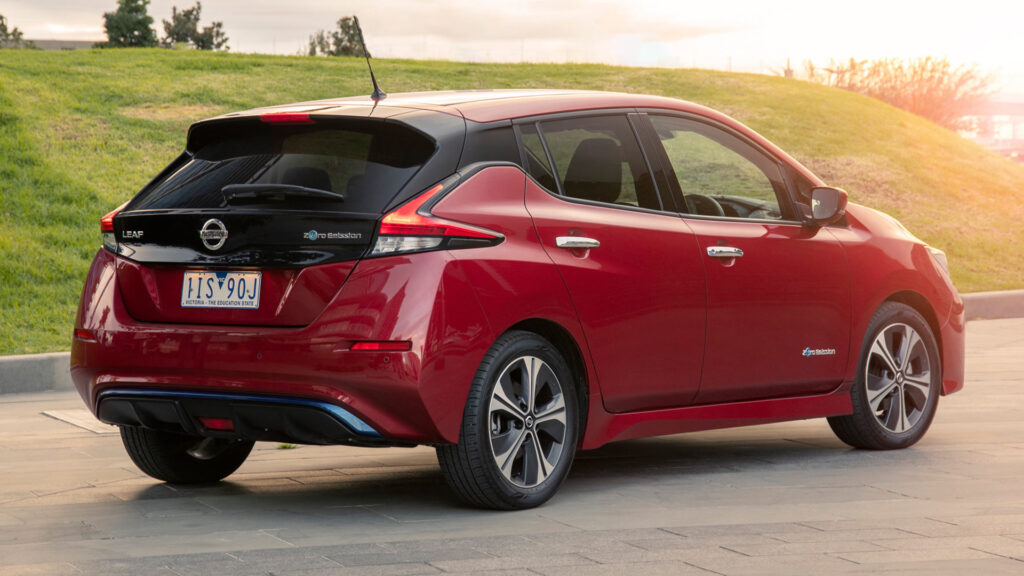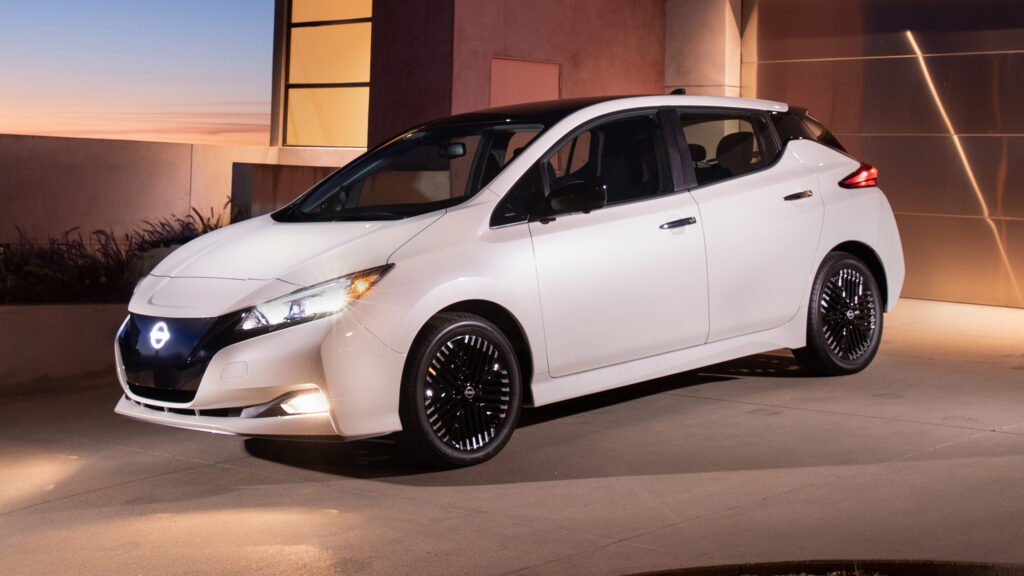- Nissan says that 2019-2020 Leaf models may have excessive lithium deposits in their battery cells.
- Owners are urged to avoid Level 3 fast charging until a software fix is implemented later this year.
- The recall affects both 60 kWh and 40 kWh versions built between August 2018 and November 2020.
More than 23,000 Nissan Leafs have been recalled across the United States as the electric vehicle could catch fire while undergoing quick charging. This is not a minor issue, and Leaf owners are urged to take this recall seriously for their own safety.
Nissan has revealed that the battery packs of some 2019-2020 Leaf models may have excessive lithium deposits within the battery cells. This could increase the electrical resistance and potentially cause a fluctuation in the state of charge. When the vehicle is then Level 3 quick charging, the increased electrical resistance may rapidly heat the battery, increasing the chance of a fire.
Read: Nissan Leaf Successor To Look Like A “Mini Ariya,” Could Offer 265 Miles Of Range
The carmaker says that owners of impacted models may notice smoke, noise, interrupted charging, or thermal odors coming from the battery pack while they are charging. A recall notice issued by the National Highway Traffic Safety Administration (NHTSA) doesn’t state if Nissan is aware of any customer cars that have caught fire while quick charging because of the battery fault.
A total of 23,887 vehicles are involved in the recall. These consist of 2019-2020MY Leafs that were manufactured with the Level 3 CHAdeMO quick charging port between August 29, 2018, and November 3, 2020, at the Nissan Smyrna plant. Both the 60 kWh and 40 kWh versions of the Leaf are impacted.

Owners of the recalled models will soon receive official letters instructing them to avoid using Level 3 quick charging until a permanent solution is in place. Nissan is still developing a software reprogram to address the issue, but it won’t be available until November. Once finalized, dealerships will update the vehicle software to resolve the defect and prevent further risks.
Though Nissan has been producing the second-generation Leaf since late 2017, the car now feels increasingly outdated in a market swarming with more advanced EVs. A third-generation model is in the works, but it will be radically different and morph into a crossover, adopting a design inspired by the Chill-Out Concept from 2021.




